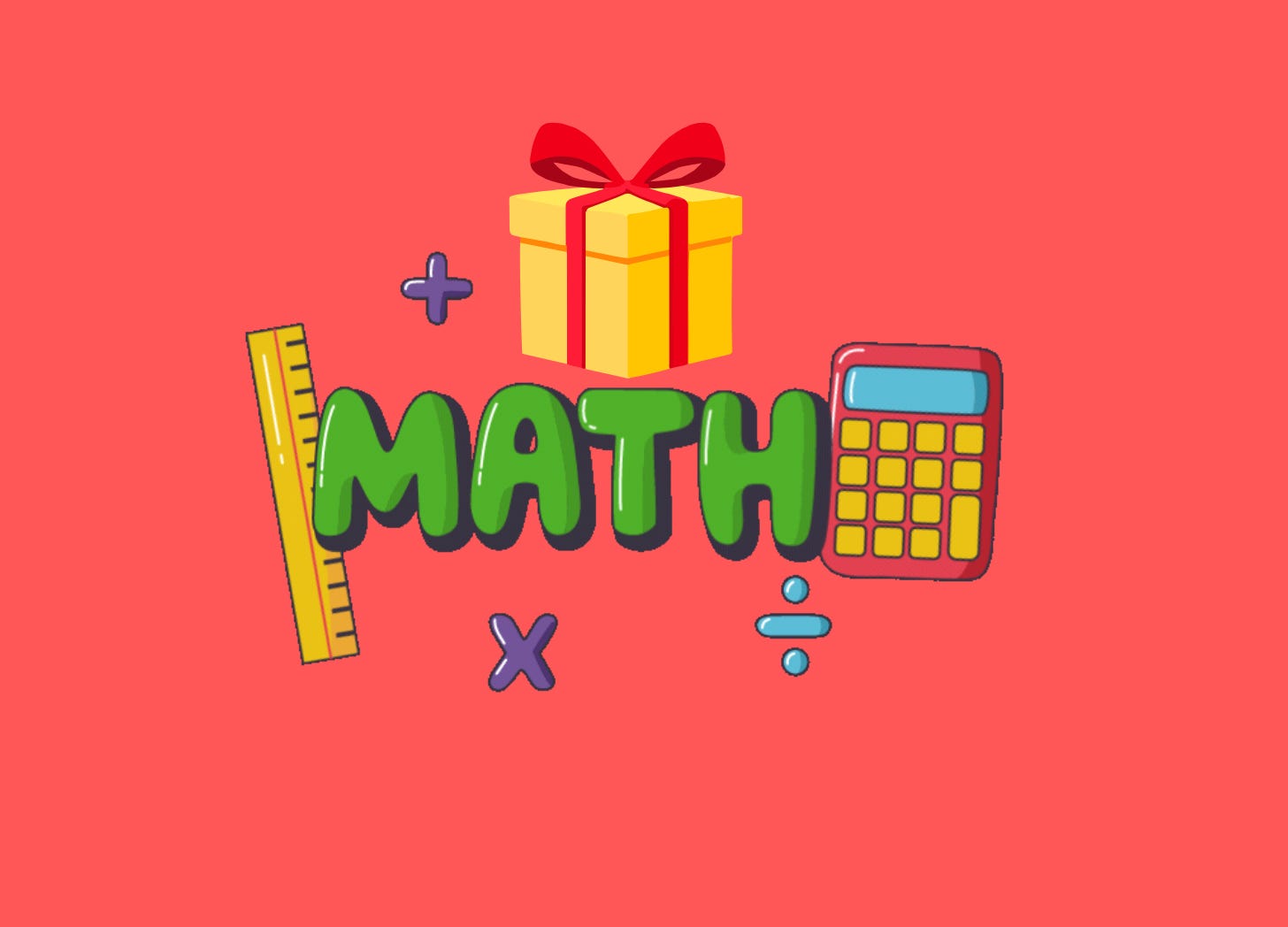How Some Kids Finish K–8 Math in Six Months
The Impossibility of Success in a Traditional Group Setting - and What to Do
When a child learns faster or approaches math differently than most of their peers, the typical problems with conventional schooling become much sharper. The word “gifted” gets used a lot, but it can be misleading. Weird religious connotations aside, in school it is not always a gift. A child who is far ahead in math may be painfully bored in a traditional classroom. If that same child slips behind even briefly, or simply does not respond well to conventional methods of teaching math, their self-image as a “smart kid” can clash with their current performance, leading to frustration, withdrawal, or even lashing out. Conversely, they may cling to the gifted label and become perfectionists, afraid to take risks or make the mistakes that are so essential for growth.
These challenges are not exclusive to gifted students, but they tend to be more pronounced. The constant cycle of rushing ahead, waiting, falling behind, and scrambling to catch up is inefficient, exhausting, and demoralizing. Add to this the disconnect between what is taught in school and the skills mathematicians and problem-solvers actually need in the real world, and it becomes clear why so many gifted learners fail to thrive in traditional settings, and why so many people learn to loathe a marvelous, magical subject with the potential to give them both power in, and awe of, life.
Much of this stems from the limits of group learning and a standardized curriculum that emphasizes memorization over true conceptual understanding. In contrast, a personalized, one-to-one approach can match the pace and depth of instruction to the learner, ensuring both mastery and engagement.
1-1 Mastery Learning
Math can be learned more effectively by all kids, not just advanced learners, when they can move at their own pace in a 1-1 setting. Think of it like a smooth train ride with no unnecessary stops, no false starts, no getting derailed, and no being left behind. That is why we so often recommend one-to-one mastery learning for advanced learners. It is the single best way to keep them challenged when they are ahead and supported when they need more time.
Conceptual understanding vs. memorizing formulas
Advanced learners thrive when they deeply understand how math works rather than just memorizing formulas. Research shows that conceptual learning builds connections across ideas, making it easier to retain and apply knowledge flexibly. When students grasp the “why” behind a procedure rather than only the “how,” they are better equipped to tackle unfamiliar problems and extend their thinking. This kind of understanding builds confidence, resilience, and creative problem-solving, which are qualities that gifted learners especially need to stay engaged and challenged.
One of the best ways to foster this deeper understanding is to use curriculum designed specifically for independent, mastery-based learning. The right resources give students the time to explore concepts fully, connect ideas across topics, and apply what they learn in meaningful ways.
Curriculum options for independent or guided learning
Some children thrive with a well-chosen curriculum and minimal outside help. In these cases, high-quality, flexible programs can be used independently, with a parent, or alongside a tutor.
Beast Academy Online is a problem-solving based math program designed for kids ages 7 to 13. It presents concepts through engaging comic-style guides and challenging puzzles. For advanced learners, Beast Academy offers depth and rigor far beyond most elementary math curricula while keeping the experience playful and creative.
Beast Academy Books provide the same rich problems and explanations in a print format. Many families prefer the books for their flexibility, screen-free format, and the ability to revisit lessons without logging in.
Math Dad is a full-year middle school physics course taught through video lessons, hands-on labs, and problem sets. It is ideal for math-strong kids because it shows them how mathematical thinking applies directly to understanding the physical world.
Thinkwell Math offers rigorous, self-paced math courses that match or exceed the pace of advanced learners. The clear video lessons, interactive exercises, and immediate feedback let students move ahead as soon as they have mastered a concept while still building deep conceptual understanding.
DragonBox Apps introduce algebra and other abstract concepts through intuitive, game-based play. These apps are particularly powerful for younger gifted learners because they allow them to explore higher-level math ideas without the intimidation of formal notation.
Yes, you can teach your gifted kid math (even if you’re “not a math person”)
Many parents do not feel confident teaching their advanced learners, especially when the content surpasses what they remember from school. We believe parents are more than capable as long as they are willing to learn alongside their child and use developmentally appropriate communication. That said, sometimes due to time constraints or simply because it can help to have a fresh perspective, bringing in a tutor or another mentor can be valuable. A good tutor can introduce new strategies, break through stubborn sticking points, and reignite enthusiasm when motivation dips.
Tutoring for gifted math learners
Even when a child has exceptional mathematical ability, there are challenges that can interfere with learning. Some advanced learners become perfectionists, avoiding challenges for fear of making mistakes. Others may rush through work, overlooking details because they are used to getting answers quickly. Emotional intensity can amplify frustration when a problem feels hard, leading to meltdowns or withdrawal. In some cases, uneven development means a student’s reasoning skills far outpace their fine motor skills or working memory, making tasks like showing their work unusually difficult. Without the right environment, these issues can compound over time, causing bright students to disengage from math altogether.
Working with advanced learners takes more than just subject knowledge. At Modulo, we have vetted tutors who understand the unique challenges of teaching gifted kids, including perfectionism, emotional intensity, asynchronous development, twice-exceptionality, and learning gaps hidden by high performance. These tutors know how to balance challenge with support, helping students push their thinking without burning out, and guiding them through both academic and emotional roadblocks.
As both the mom of a twice-exceptional child and a certified math teacher, Krista understands gifted kids on a deep, personal level. She knows that advanced learners often need more than acceleration — they need intentional, individualized support that nurtures both their abilities and their emotional well-being. Krista combines strong subject expertise with empathy and patience, making her an exceptional fit for students who thrive with a balance of high expectations and thoughtful guidance.
Sometimes, having a tutor who is just a few years ahead can be an incredibly powerful motivator. Lauren is a high school student excelling in advanced math, and she remembers exactly what it feels like to face challenging concepts for the first time. Her near-peer perspective makes it easy for younger learners to connect with her, ask questions without fear, and feel understood. While she may not have the formal credentials of a veteran teacher, her relatability and enthusiasm make complex topics feel approachable and even fun.
Sophia is an epidemiologist who brings math to life by showing how it applies to real-world problems. Her lessons often connect abstract concepts to practical examples, helping students see the “why” behind the numbers. For gifted learners who thrive when they can connect theory to application, Sophia offers a bridge between the classroom and the world beyond. Her ability to link math to science, health, and everyday decision-making keeps even the most advanced students engaged and curious.
With a background in biology and years of experience tutoring middle and high school math, Rafael is known for his calm, encouraging presence. Families appreciate his ability to adapt lessons to match each student’s pace — slowing down to ensure deep understanding or accelerating to keep up with a student’s enthusiasm. He’s especially skilled at helping students build problem-solving resilience, guiding them to work through challenges without losing confidence.
Hanyuan knows firsthand what it means to be a gifted learner. As a highly gifted math student and Ph.D.-trained chemist, he understands both the excitement and the challenges that come with advanced learning, including asynchronous development. Some Modulo kids fly through the entire K–8 math curriculum in just six months, reaching college-level math long before they are ready for traditional college-style teaching. Hanyuan meets these students where they are, blending humor, colorful stories, and real-world analogies to keep learning engaging. With seven years of teaching and tutoring experience, he connects easily with high-achieving and twice-exceptional students, breaking down complex ideas into clear, accessible steps. For students who are far ahead, he can guide them through the most advanced college-level math. He also offers math tutoring in Mandarin, making him a standout choice for bilingual learners or families seeking instruction in both languages.
More support for parents
For parents looking to support their child’s math learning at home, we recommend starting with our guide How to Help Your Child with Math if You’re Not a Math Person and its companion video. These resources offer practical strategies for building confidence, maintaining a positive relationship with math, and avoiding the pitfalls that can turn even gifted learners away from the subject.
The Systemic Problem
The truth is, our school system is set up in a way that often ensures gifted math students will fail to reach their potential. At Modulo, we’ve seen how changing a class from one student to two students can upset the entire dynamic and stymie growth. Not the highest level honors math course will change the stops and starts that interfere with quality education until kids are learning one on one using math that focuses on conceptual understanding and real-world challenges. Rigid pacing, age-based grouping, and an emphasis on test preparation over deep learning create an environment that works against the needs of advanced learners. Without intervention from parents, tutors, or alternative programs, these students are likely to face years of boredom, frustration, and missed opportunities for real growth.
Modulo has an entire section devoted to curriculum, classes, and tutors for math for gifted learners, where you can explore more resources designed specifically for advanced and twice-exceptional students





